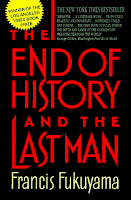Wednesday, November 30, 2011
The Case Against Striking - But For Supporting Public Reform
Monday, November 28, 2011
Out of the Ashes
 My review of David Lammy's interesting book, "Out of the Ashes", has appeared on the TRG's Egremont blog, and is reprinted below:
My review of David Lammy's interesting book, "Out of the Ashes", has appeared on the TRG's Egremont blog, and is reprinted below:The last time there were riots in Tottenham, the local MP’s response was to crow that the “police got a bloody good hiding”. He may have been chiming in with the views of many of his constituents, but in the aftermath of riots that encompassed the brutal murder of a police constable it was never going to be a response that scored highly on the constructive engagement scale.
This time, the local MP, who was a boy growing up near the Broadwater Farm estate in 1985, raced back from his holiday as soon as he heard of tension in Tottenham following the shooting of Mark Duggan, spent hours and days in constructive engagement with the local community and the police, and has now published a book of his reflections on the state of urban Britain. But then, David Lammy has always been a very different character from his predecessor.
The former Higher Education minister hasn’t necessarily been one of New Labour’s more impressive spokesmen, but in his post-riots book “Out of the Ashes” he seems to have discovered a political voice that might just be the making of him. No-one can doubt Lammy’s credentials in reflecting on the lessons of Tottenham in 2011. Brought up in the area he now represents, a boy in a single parent (his mother) family from the age of 12, and a black student in a private white-dominated school for much of his secondary schooling, Lammy has personal credentials aplenty in casting his eye over the inner urban landscape that exploded so suddenly last summer. He also understands how government works, and has a close knowledge of the mechanics of the New Labour project under both Blair and Brown.
Yet his is no ‘angry voice’ and it is certainly not an apologia for New Labour. It is a very personal, dignified and thought provoking reflection that offers plenty of food for thought when it comes to devising policies to regenerate a Britain whose broken state Lammy firmly recognises. It is a virtue of his book that it does not represent some dully partisan approach but instead seeks to find practical ideas in community projects which have already been tried and tested. Lammy may write as a Labour MP, but there is much here that One Nation Tories could readily identify with.
Not that there isn’t anger in “Out of the Ashes”. Go to the book’s last chapter, “Banks and Bureaucrats”, and you’ll find an eloquent and condemning account of the powerlessness of the modest citizens left homeless by the riots, and treated mercilessly by the banks. As Lammy recounts the wretched behaviour of banks whose own irresponsibility caused them to be bailed out to the tune of billions of taxpayers’ pounds, you can almost hear the levels of indignation rising and you start to ask why every representative doesn’t regard the contemptuous treatment of his constituents with similar outrage.
Even here, Lammy soon morphs into the would-be fixer, examining how bureaucracy might just work in his constituents’ defence. This is his virtue. Unlike socialists of yore, the current MP for Tottenham sees people in small community terms, to be helped and engaged with by similarly community-based ideas but backed by the power of the state. The key is that the state comes second, not first.
Some of Lammy’s themes will chime with even the most vigorous social conservative. He has no truck with the liberal notion that fathers in families don’t matter. After all, he grew up without one for a significant period of his childhood, and hasn’t put on rose-tinted spectacles to view the experience subsequently. He wants strong male role models in deprived urban areas who are not vacuous celebrities or weapon toting gangsters. He believes every sinew should be strained to keep fathers, especially separated ones, involved in the child rearing process.
On criminality, he believes in punishment, but once punishment has been made he wants effective rehabilitation and offers an interesting – if rather uncosted – form of ‘social impact credits’ to pay for it. This is where the Lammy medicine veers away from the world view of many Tories – he knows his proposals will cost money, and is happy to advocate this. After all, he is not planning to cut the state. Not when it has so much to do.
Lammy’s Britain is broken because too few jobs are around to give people the necessary self-worth, and because poverty is surrounded by plenty, and because the voiceless see the influence wielded by the small community of the well connected. He takes examples that look like the Big Society in action on a small scale, but believes that they need proper state support to become full blown solutions.
He writes with authority and integrity because, whatever else you think of him, he knows his constituency intimately and has been there when a promising young man has been gunned down by a gang emptied of the last signs of human morality, or when a young offender has been failed by the would-be system of rehabilitation. When a politician writes with this level of sincerity, knowledge and commitment, he deserves a hearing. From all parties.
Wednesday, November 23, 2011
The Republicans' Lunacy
The list of tea-party candidates reads like the early history of the U.S. space program, a series of humiliating fizzles and explosions that never achieved liftoff. A political movement that never took governing seriously was exploited by a succession of political entrepreneurs uninterested in governing—but all too interested in merchandising. Much as viewers tune in to American Idol to laugh at the inept, borderline dysfunctional early auditions, these tea-party champions provide a ghoulish type of news entertainment each time they reveal that they know nothing about public affairs and have never attempted to learn. But Cain’s gaffe on Libya or Perry’s brain freeze on the Department of Energy are not only indicators of bad leadership. They are indicators of a crisis of followership. The tea party never demanded knowledge or concern for governance, and so of course it never got them.
Wednesday, November 16, 2011
Oh No - Now It's Putin The Dentist

As if Russia wasn't in a bad enough state, it's next president (the election's just a formality) is now trying out in that most pain-inducing of professions - dentistry.
Thursday, November 10, 2011
Is Perry Out?
Anyway - here's that apparently fatal Perry performance (and yes, it is pretty bad).
Sunday, November 06, 2011
History Can Change Minds
In the hands of a great historian, the subject has the power to change minds...
What better?
Home Cinema Doesn't Exist
 Anthony Lane is one of the finest film critics at work today, and his reviews for the New Yorker are always worth reading, not just for their fine, literary, perceptive commentary, suffused with the empathy of the genuine film-goer and a pervasive wit, but also for the light he manages to shed on one of the central elements of our contemporary culture. In this week's edition, he uses his review of the crime caper 'Tower Heist', and the pessimistic fable 'Melancholia', to pass judgement on the concept of home cinema. Whatever their merits as films (Lane is hilariously cool about 'Tower Heist', definitely taken with 'Melancholia'), they share a history as films that were planned to go straight to Video On Demand, alongside their cinematic release - or as near as. The distributors of 'Tower Heist' eventually relented, but 'Melancholia' was available 'on demand' long before it was released in the cinema.
Anthony Lane is one of the finest film critics at work today, and his reviews for the New Yorker are always worth reading, not just for their fine, literary, perceptive commentary, suffused with the empathy of the genuine film-goer and a pervasive wit, but also for the light he manages to shed on one of the central elements of our contemporary culture. In this week's edition, he uses his review of the crime caper 'Tower Heist', and the pessimistic fable 'Melancholia', to pass judgement on the concept of home cinema. Whatever their merits as films (Lane is hilariously cool about 'Tower Heist', definitely taken with 'Melancholia'), they share a history as films that were planned to go straight to Video On Demand, alongside their cinematic release - or as near as. The distributors of 'Tower Heist' eventually relented, but 'Melancholia' was available 'on demand' long before it was released in the cinema.It is this which provokes Lane's reflection that, call it what you will, video at home is NOT cinema! Yes, he understands why you might feel tempted to avoid the cinema, suggesting the average reaction of the film buff to the chance to watch at home might be thus:
“Can you blame us?” they will cry. “Who wants to pay for a sitter, drive twenty miles in the rain, and sit in a fug of vaporized popcorn butter next to people who are either auditioning for ‘Contagion 2’ or texting the Mahabharata to their second-best friends?”
But there is much more to consider, and Lane comes up with an almost elegiac defence of the collective cinema experience:
There’s only one problem with home cinema: it doesn’t exist. The very phrase is an oxymoron. As you pause your film to answer the door or fetch a Coke, the experience ceases to be cinema. Even the act of choosing when to watch means you are no longer at the movies. Choice—preferably an exhaustive menu of it—pretty much defines our status as consumers, and has long been an unquestioned tenet of the capitalist feast, but in fact carte blanche is no way to run a cultural life (or any kind of life, for that matter), and one thing that has nourished the theatrical experience, from the Athens of Aeschylus to the multiplex, is the element of compulsion. Someone else decides when the show will start; we may decide whether to attend, but, once we take our seats, we join the ride and surrender our will. The same goes for the folks around us, whom we do not know, and whom we resemble only in our private desire to know more of what will unfold in public, on the stage or screen. We are strangers in communion, and, once that pact of the intimate and the populous is snapped, the charm is gone. Our revels now are ended.
I love that. I love the idea of "strangers in communion", lifting the film-going experience to something almost spiritual, whatever the nature of the film we watch. It is part of our collective cultural lives, and at a time of increasing atomisation, it is definitely worth preserving.
BoJo and Barack Look Safe in 2012
 There are two very different electoral personality contests taking place in 2012. On one hinges the fate of the world's most powerful military nation, and still its crucial economic engine. On the other hinges....the continued phasing out of bendy buses perhaps? They may be wholly different in scale but they are both going to offer fascinating and entertaining political drama, as is the nature of direct personal elections. And, intriguingly, though one is a philandering, gaffe-dropping right-winger, and the other a tightly controlled, committed liberal reformer, both the incumbents look - at present - as if they might be safe. That this is so, in a time of economic crisis which should absolutely not be favouring incumbents, is down in large part to the inadequacy of their challengers.
There are two very different electoral personality contests taking place in 2012. On one hinges the fate of the world's most powerful military nation, and still its crucial economic engine. On the other hinges....the continued phasing out of bendy buses perhaps? They may be wholly different in scale but they are both going to offer fascinating and entertaining political drama, as is the nature of direct personal elections. And, intriguingly, though one is a philandering, gaffe-dropping right-winger, and the other a tightly controlled, committed liberal reformer, both the incumbents look - at present - as if they might be safe. That this is so, in a time of economic crisis which should absolutely not be favouring incumbents, is down in large part to the inadequacy of their challengers.Let's take the smaller contest first. As Mayor of London, Boris Johnson has the second largest personal mandate in western Europe (only the president of France, elected by a whole nation, has a larger). His role, though, has few obvious powers and is defined more by his ability to influence a range of other bodies and their appointments, such as Transport for London and the Metropolitan Police Authority. Even so, the Mayor is in a position to provide leadership to one of the world's greatest cities, and there have been plenty of opportunities for Boris to do so, ranging from the need to bridge London's powerful and wealthy economic elite with its teeming citizens on average to poor incomes; through offering hope and direction during and after some of the worst riots to affect the city in years; to waving the flag for the city that will host next year's Olympics and ensuring its legacy. Boris has been, at best, erratic over all these challenges. He took his time to return when the riots broke out. The Olympic legacy is still befuddled and mixed. His has been an ambiguous voice on the issue of the City versus the People. Even when it snows, Boris' roadshow slips and slides along with the weather.
Against this, he should be an easy target. But his main opponent is a tired re-tread (Ken Livingstone), whilst the third party has - amazingly - also offered up the same candidate as last time (Brian Paddick). Dan Hodges outlines the reasons why Livingstone is such a poor candidate for a piece on Progress. He also notes the 'showbiz' nature of the mayoral contest, which is where Boris exhibits the necessary all important charisma against an opponent whose every pronouncement has been death-defyingly dull so far. As for Boris' ability to distance himself from the Tory Party high command, it is without peer. If he does win - the safe money option at the moment - it will give no comfort to the Tory Party.
The more significant contest is, of course, the US presidential election, and here attention has been focusing to date on the fractious Republican field. As I've noted before, barely a week goes by without one of the right-wing front-runners imploding, and it has most recently been the turn of outsider Herman Cain. Cain has been the subject of some vague sexual innuendos which have stalled his appeals, but every scandal and hitch afflicting the Republicans' right-wing leaders benefits the man who desperately wants the nomination, Mitt Romney. Many observers believe that, in turn, a Romney candidacy pretty well hands the election back to Barack Obama.
Incumbent Obama, too, presides over a recession with no obvious upturn in sight, and has imposed a hugely controversial - from both left and right - health care plan on a country that hates state action. The optimism that greeted his election in 2008 has dissipated and many of his liberal allies feel he has made too little progress to merit a second term. All of this should be manna to the Republicans, yet as Tim Stanley points out in the Telegraph, the Republicans have leaked scandal about each other and appear as a thoroughly disunified, macabre bunch of political misfits (ok, Stanley doesn't use those terms to be fair; he's a lot more polite). Stanley's article, from an academic who wants to see Obama out of the White House, is also interesting in its focus on the power of a relentless media in raking over candidate private lives, which should provoke a serious debate about how we really want our politics reported and pursued. For the moment, however, such shenanigans offer hope to a beleaguered White House incumbent. It's one thing that offers a link between two otherwise very different personal electoral contests.
The retreat of liberalism goes on
As communism seemingly disappeared from view at the end of the 1980s, in a sudden and unexpected blow-out, there was plenty of triumphal...

-
As communism seemingly disappeared from view at the end of the 1980s, in a sudden and unexpected blow-out, there was plenty of triumphal...
-
It's always a busy time for the Donald. Today alone he is defending his new tariff system and agreeing to meet North Korean dictator ...
-
The next concrete vote on Trump isn't until November, but pollsters and election wonks are all analysing the data furiously to see if th...

